Know about Big Data, Data Science and Data Analytics
Category: Hadoop Posted:Apr 21, 2017 By: Serena Josh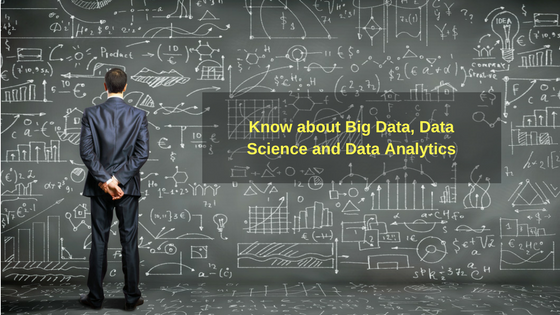
The ever changing trends that the companies face, has made them imperative for technologies to leverage the commands of data as well as analytics. The valuable visions extracted from analyzing data push the companies to determine a solution to business problems. Analyzing structured as well as unstructured data from various sources opted for the usage of Big Data, Data Science, and Data Analytics. In addition, Data Science, Big Data, and Data Analytics have influenced on the customer insights, project management as well as risk management. Here are some of the essential information all you have to aware about the Big Data, Data Science, and Data Analytics.
Big Data
Big Data is defined as a term that is used to define the gathering, processing as well as the availability of the immense volume of flowing data in the real world. Companies are compiling sales, marketing, customer data, social conversations, transactional data and even external data such as weather, stock prices as well as news to determine association and correlation statically binding models to support them make accurate decisions.
Now the Big Data is defined in three Vs: They are
Volume
The companies collect data from various sources like social media, business transactions, and details from machine to machine data or sensor. In early time, storing these huge data would have been an issue; however, new technologies have made this process effortless.
Velocity
Data flows at an unparalleled speed and should be handled within a right timely method. Sensors, smart metering, and Radio Frequency Identification (RFID) tags are driving the requirement to work with data flows in real time.
Variety
Data available in all kinds of formats including numeric data in conventional databases, structured data, unstructured text documents, audio, video, email, financial transactions, and stock ticker data.
Learn Big Data from Industry Expert
Advantages of Big Data
In recent days, there has been a flourishing in Big Data due to the enhancement of mobile, cloud, and social as well as multi-media computing. It is up to the companies to connect the huge amount of unparalleled data to extract useful and actionable visions. However, conventional systems can’t store, analyze and process massive amounts of unstructured data, companies are shifting to Big Data management to shift unstructured form of data into the actionable form required for achieving key visions into their business as well as customers.
Big Data is opportune. Knowledge workers used to spend 60 percent of their workday to identify and handle data. Most of the senior executive finds difficulty in accessing the exact data, but Big Data is accessible. Around 43 percent of the organizations are disappointed with their tool’s capability to filter out inappropriate data. Big Data supports to identify relevant data effortlessly.
With Big Data, it is possible to have a complete answer for more questions. Handling a business and business processes are about answering questions like:
- What are the customers requirement?
- What makes customers desire?
- Who are the best customers?
- Why do clients go for another brand or solution?
With the powerful intelligence platform of the Big Data, the process of answering this kind of questions turns into straightforward. The main benefit of Big Data is its capability to raise questions and answer questions, more energetically. With this advantage, the entire process of answering difficult questions can be condensed from months to days and hours or even minutes.
With Big Data, the business becomes confident in their accurate data. In early times, businesses find inconvenient with the inaccurate data. When incorporating huge data into the question and answer approach for business decisions, the business achieves entire view of the answers in a more accurate way. This leads to intellectual enhancement in the question and answer strategy, making the approach itself more fluid and organic.
Big Data empowers a new trend of employees. By empowering employees, businesses can make an environment, which accelerates creativity, Out of the box thinking, raising critical analyses and analytic analyses.
In these days, it is very hard to track the consumers; since, they search around several things before they purchase, try to have a suggestion about their purchase via the social network, prefer to choose unique items and many other reasons. Big Data helps to profile these increasing details in a quite reaching manner; hence, you can able to engage in a real-time, one-on-one conversation with the consumers. This won’t sound luxury. In case, you do not treat your consumer like he or she desire to, surely they will switch to another vendor or business.
Skills Required to Become a Big Data Professional
- The candidate should possess great analytical skills. He should be capable of having sense of the data piles that he gets. With this ability, he will be powerful to identify which data is sensitive to the solution; this is more relevant to problem-solving skills.
- He should be more creative and capable of making new methods to collect analyze as well as interpret a data strategy. This is one of the suitable skills.
- Statistical and Mathematical skills are other vital skills for the Big Data Professionals.
- In these days, there is nothing to do without a computer on the data strategy. The professionals will need to continuously access the algorithms in order to gather visions from the data.
- A Big Data candidate requires having a great understanding of the business objectives and underlying processes, which leads the business and profit improvement.
Register for Live Webinar about Big Data
Data Science
Data Science is a term to represent the math, scientific method, statistics and an entire host of other tools that are used on data sets to derive knowledge and vision from given data. Fundamentally, it is utilizing multilayered tools to grab Big Data and derive helpful details from it. It is something that is dealing with structured as well as unstructured data. It is a field, which includes everything that is associated with data preparation, analysis, and data cleansing.
Data Science is defined as the compilation of mathematics, statistics, problem-solving, programming, capturing data from resourceful methods, the capacity to view the things differently as well as the process of preparing and aligning data.
In other words, it is a technique that is used when attempting to derive visions and details from data.
Advantages of Data Science
Search engines utilize the algorithms of Data Science to provide better results for the search queries in a fraction of seconds. The digital marketing field makes use of the Data Science algorithms in various actions like display banners and digital billboards. Hence, there is no wonder of stating that Data Science behinds the reason for the digital advertisements gaining higher CTR when compared to traditional advertisements.
Skills Required to Become a Data Scientist
- The professional should pass his Master’s Degree with 88 % of marks and PhDs with 46%.
- Data Scientists are generally expected to have in-depth knowledge of R and SAS.
- In addition to programming languages like C, C++, Perl and Java, Data Scientists should have knowledge of Python coding.
- Even though, Hadoop is not a mandatory requirement, having an awareness of the Hadoop Platform will be an added advantage in this field. Having an experience in Pig or Hive is also adding a value to the profile.
- The candidates who have skills in writing as well as executing complex queries are highly preferred even though SQL database and coding is not a part of the background of the Data Science.
- The professional should be capable of working with unstructured data. The Data Scientist is usually required to work with unstructured data on the video feeds, social media or audio. Hence, it is the vital skill set.
Big Data Analytics
The Big Data analytics is defined as the process that examines the huge amount of data to reveal correlations, hidden patterns, and other visions. With the recent technology, it is feasible to analyze the data and derive answers from it instantly. With the conventional business intelligence, business finds slower and inefficient process of getting an answer from the data.
The Big Data Analytics permit Data Scientists, Analysts, and other users to analyze huge volume of transaction data as well as various other data sources, which conventional business systems won’t able to tackle. Conventional systems may fail due to its inability of evaluating the several data sources. Big Data Analytics uses the sophisticated software programs. However, sometimes the unstructured form of data in the Big Data Analytics not be suited to traditional data warehouses. The high processing needs of the Big Data also make conventional data warehousing an insufficient fit. This paved the way for the emergence of Big Data Analytics technologies and environments, including MapReduce, Hadoop, and SQL databases. In addition, these technologies create an open source software structure, which is used to process large data sets over collected systems.
Advantages of Big Data Analytics
Several companies, which utilizes Big Data Analytics, have gained numerous advantages. They have identified that this technology can be very beneficial when taking business-oriented decisions. The main goal of the Big Data Analytics is to support companies in taking more detailed business decisions by facilitating them to access a huge amount of transactional data. This offers them with the chance to make innovation as well as to make the outstanding decisions depending on the data results.
Big Data Analytics also offers them with the vision into how fulfilled their clients are with their service and products. With the knowledge gained from the data, companies have updated their services, products and marketing strategy in order to meet their client’s requirements.
The conventional way of handling large amounts of data can result in more expensive. However, with Big Data Analytics, companies simplifies this approach by processing, advanced data analysis and processing at high speeds. Users find more scalability and flexibility with this process. This tool permits to evaluate the intimidations that influences the organizations internally. This supports to guarantee the more sensitive details like a credit card. The details are stored based on the company standards. Big Data Analytics allows the companies to make in-depth personal profiles of their clients, regardless of whether they’re B2C or B2B. It allows the companies to combine the data from blogs, social networks, click behavior, online surveys, and sales data in order to make detailed personality profiles. Because of this approach, the company can achieve more data-driven client-centric marketing that offers the chance to release more directed message as well as create a direct relationship with the customers.
The important benefit of Big Data Analytics of the companies is none other than its real-time feature. Several companies like to have an access to the real-time data because of the requirement of fast data, which can be instantly served upon. The real-time feature facilitates the companies to customize the look and feel of their content and website to meet the preference and requirements of the customers. For instance, when it comes to online advertising, an organization has the capability to customize an advertisement for various viewers based on their customer personality profiles.
Skills Required to Become a Data Analyst
- The candidate should have programming skills like R and Python.
- He should possess mathematics and statistical skills like descriptive and inferential statistics.
- He should also possess other skills like machine learning, data wrangling, data visualization, communication and data intuition.
A Quick Note on Big Data, Data Science And Data Analytics
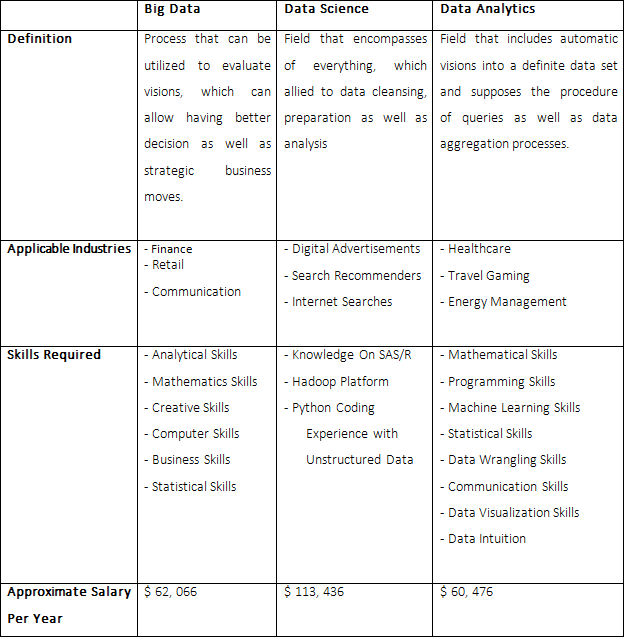
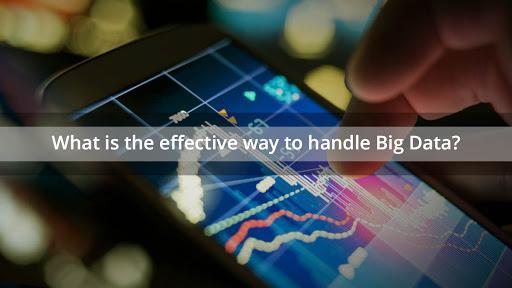
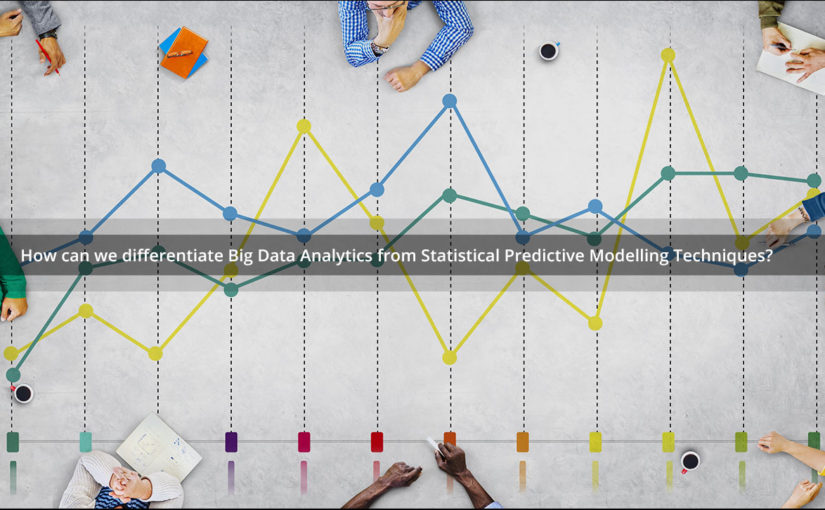
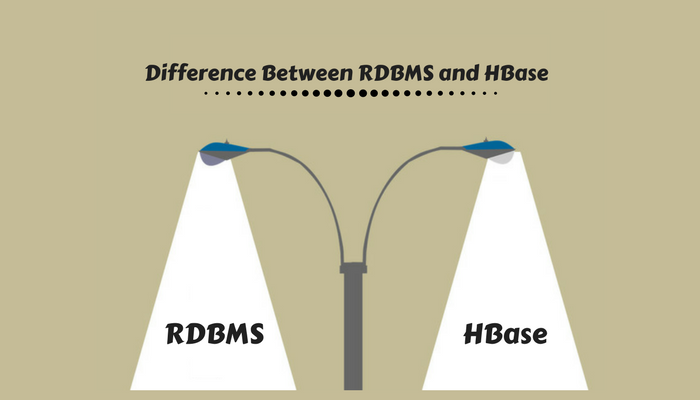

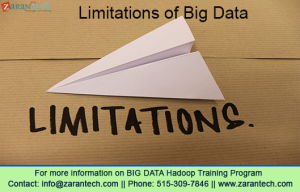
 99999999 (Toll Free)
99999999 (Toll Free)  +91 9999999
+91 9999999